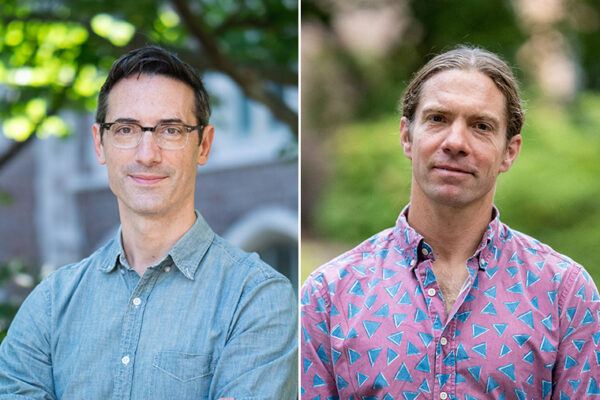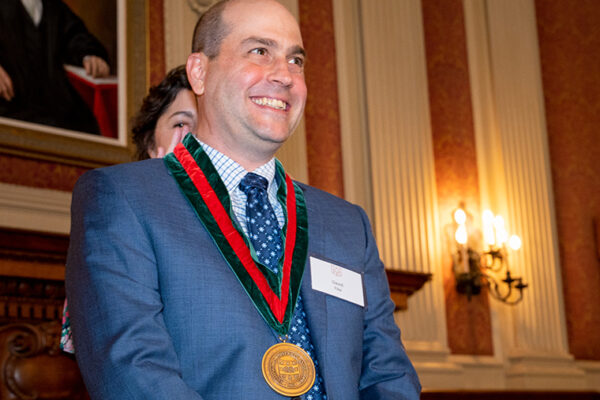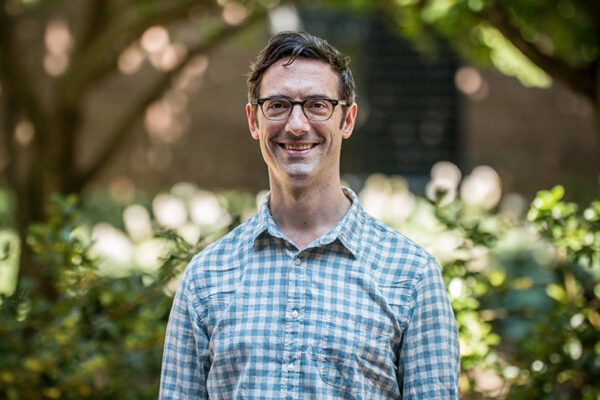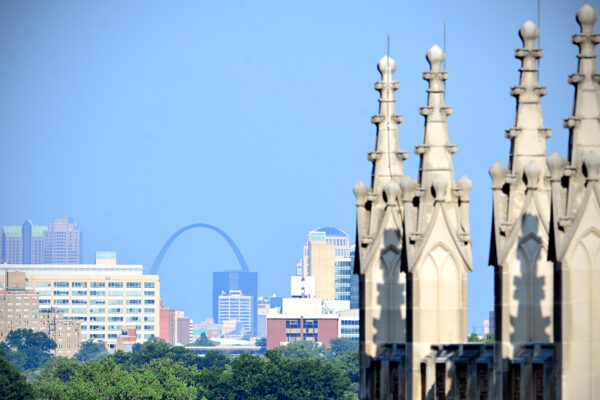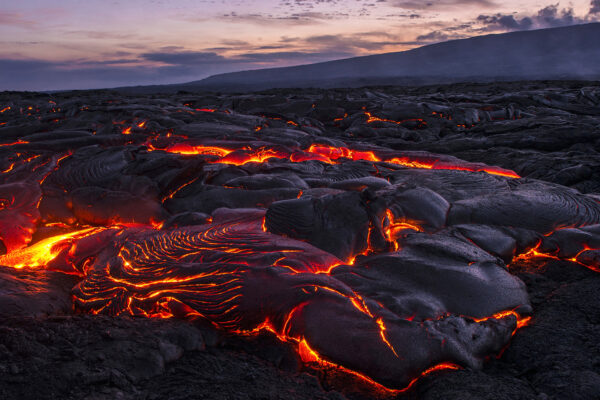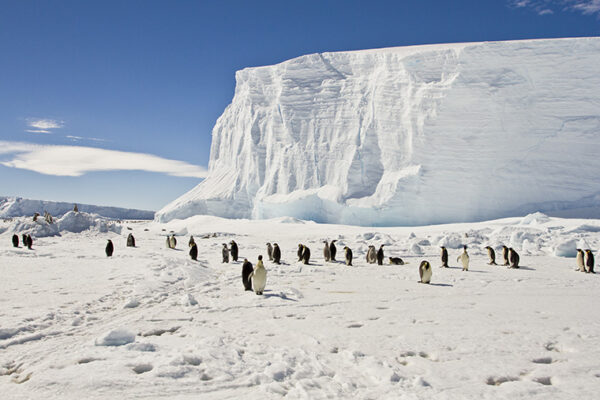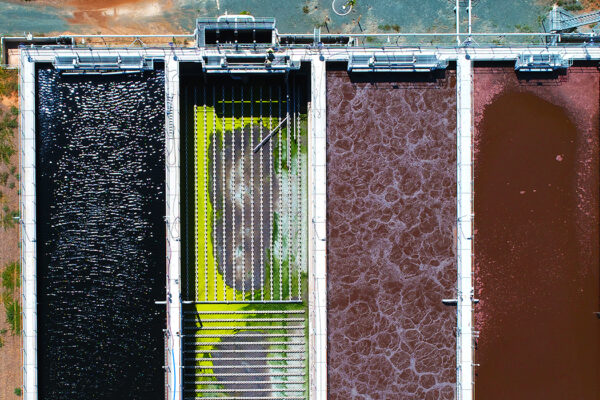Henriksen, Murch selected as 2022 Moore Experimental Physics Investigators
Erik Henriksen, associate professor of physics, and Kater Murch, professor of physics, both in Arts & Sciences, each will receive $1.25 million from the Gordon and Betty Moore Foundation for their projects over the next five years. Both are founding members of the university’s Center for Quantum Leaps.
Fike installed as Glassberg/Greensfelder Distinguished University Professor
David A. Fike, professor of earth and planetary sciences in Arts & Sciences and director of the environmental studies program and the International Center for Energy, Environment and Sustainability, was installed as the Myron & Sonya Glassberg/Albert & Blanche Greensfelder Distinguished University Professor.
Nussinov, Seidel to work on imaging goggles
Physicists Zohar Nussinov and Alexander Seidel, both in Arts & Sciences, received a $224,287 award from the National Institutes of Health (NIH) to work on imaging goggles for fluorescence-guided surgery.
Henriksen wins Office of Naval Research grant
Erik Henriksen, associate professor of physics in Arts & Sciences, received a three-year $599,784 grant from the Office of Naval Research for his research project on topological qubits.
NSF funds training program to boost regional quantum workforce
The National Science Foundation is investing $3 million in a new graduate student training program for aspiring scientists and educators who want to explore careers in quantum science at St. Louis-area research laboratories, private companies and other facilities.
Earth’s deep mantle was drier from the start
Geoscientist Rita Parai in Arts & Sciences uses noble gas isotopes to better understand the formation and evolution of planetary bodies. Her new modeling study published in PNAS shows that the deep mantle had low concentrations of volatiles like xenon and water when it formed, setting up an internal viscosity contrast with lasting impacts.
Geoscientists to study structure and properties of Antarctic lithosphere
Geoscientists Walid Ben Mansour and Douglas A. Wiens in Arts & Sciences received a grant from the National Science Foundation to determine the thermal and compositional structure of Antarctica using seismic, gravity and topography data and petrological modeling.
Asteroid samples offer insights into solar system evolution
Alex Meshik, research professor of physics and a faculty fellow in the McDonnell Center for the Space Sciences in Arts & Sciences, won a $690,521 NASA grant.
Andreoli to research nuclear response functions
Lorenzo Andreoli, a postdoctoral research associate in physics in Arts & Sciences, has been selected for the Universities Research Association’s Visiting Scholars Program.
When more complex is simpler
A new modeling framework proposed by physicist Mikhail Tikhonov in Arts & Sciences demonstrates how a more complex microbial ecosystem can be more coarse-grainable, making it potentially easier for scientists to understand, than one with only a few microbes interacting.
Older Stories
